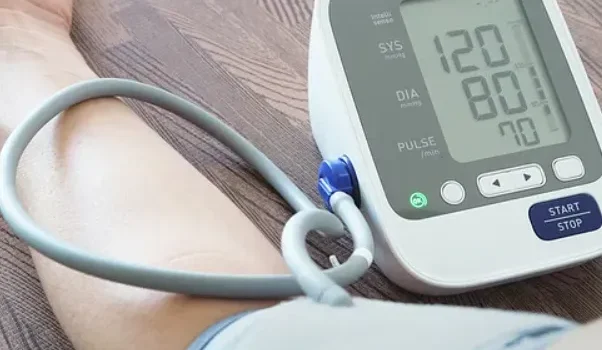Hypertension, or high blood pressure, is a silent condition that affects nearly half of the adult population in the United States. However, many people don’t realize they have it because the symptoms are often subtle or nonexistent. This makes it easy to overlook, even as it silently causes damage to the heart and blood vessels. Knowing the truth about hypertension is crucial for better prevention and management. Here, we’ll debunk several common myths to help you make more informed decisions about your health.
Myth 1: You’ll Notice Symptoms If You Have High Blood Pressure
High blood pressure is often referred to as the “silent killer” because it doesn’t show symptoms in the early stages. Many people with hypertension don’t feel anything until significant damage has already been done. This is why it’s essential to get your blood pressure checked regularly, as you can’t rely on feeling ill to alert you to a problem. If left untreated, hypertension can silently damage arteries, leading to serious health issues like stroke and heart disease.
Myth 2: Caffeine Causes High Blood Pressure
While caffeine can cause a temporary increase in blood pressure, it doesn’t lead to long-term hypertension for most healthy individuals. Drinking coffee, tea, or energy drinks may result in a temporary rise in heart rate and narrowing of blood vessels, but these effects usually go away once the caffeine is processed by your body. Additionally, moderate caffeine intake is not harmful for most people and may even provide benefits such as antioxidants, especially when consumed without excessive sugar or cream.
Myth 3: Men Are More Likely to Have High Blood Pressure Than Women
While men are at higher risk for hypertension before the age of 45, the risk for women increases significantly after menopause. This is due to changes in hormone levels, particularly the decrease in estrogen. Additionally, pregnancy-related complications and the use of birth control can influence blood pressure. Overall, both men and women are at risk as they age, as blood vessels naturally stiffen over time, increasing the likelihood of hypertension.
Myth 4: Only Major Weight Loss Will Lower Blood Pressure
Losing even a modest amount of weight—around 10-15 pounds—can have a significant impact on lowering blood pressure. For those who are overweight or obese, shedding these extra pounds relieves pressure on the heart and blood vessels, resulting in improved readings. Studies show that this level of weight loss can lower systolic blood pressure by an average of 5-20 mm Hg. Even if you regain some of the weight later, the benefits of losing weight can last for years.
Myth 5: If Hypertension Runs in Your Family, You’re Doomed to Get It
While having a family history of hypertension does increase your risk, it doesn’t guarantee that you will develop high blood pressure. Many people with a genetic predisposition can avoid hypertension by maintaining a healthy lifestyle, which includes a balanced diet, regular exercise, and stress management. Early screenings and addressing elevated blood pressure levels early on can significantly reduce the risk of developing full-blown hypertension.
Myth 6: Blood Pressure Medications Are a Substitute for Healthy Lifestyle Changes
Blood pressure medications can help manage hypertension, but they do not address the root causes of high blood pressure, such as poor diet, lack of exercise, or genetic factors. Medications can be effective in bringing blood pressure to safer levels, but lifestyle changes—such as eating a heart-healthy diet, exercising regularly, and managing stress—are essential for long-term management and can enhance the effectiveness of medication. Always work with your healthcare provider to create a comprehensive treatment plan.
Myth 7: You Can Stop Taking Your Blood Pressure Medication Once It’s Under Control
If you stop taking your hypertension medication without proper guidance, your blood pressure could rise quickly, potentially causing dangerous complications. While your doctor might gradually reduce your medication after seeing sustained improvements through lifestyle changes, it’s important to follow their advice and never stop medication without their approval. Hypertension is a lifelong condition, and while it can be managed, it cannot be cured.
Myth 8: Young People Don’t Get High Blood Pressure
Increasing rates of obesity and poor diet, particularly the consumption of processed foods, have contributed to a rise in hypertension among younger people, including teenagers and even children. Conditions like diabetes and kidney disease can also lead to early-onset high blood pressure. Just like older adults, untreated hypertension in younger individuals can lead to serious health risks like heart disease and strokes. Regular screening is essential for detecting high blood pressure early, even in young people.
By understanding the truth behind these common myths, you can take the necessary steps to prevent or manage hypertension more effectively. Regular checkups, healthy lifestyle habits, and early intervention can help you avoid the long-term consequences of high blood pressure.











